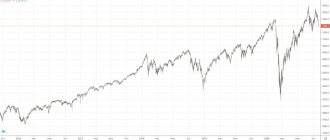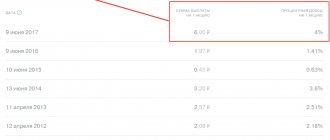In light of the news about Deutsche Bank, many people are wondering what kind of bank it is and what it does. Where do such large funds come from? After all, the bank has neither offices throughout Russia nor ATMs. However, the bank serves businesses in the Russian Federation.
The banking organization Deutsche Bank is part of the German banking group, the founding date of which is considered to be 1870. Today, this organization serves over 13 million clients in 1.5 thousand branches. The bank's geographical location includes 76 countries, which includes Russia. Now the institution is expanding its business towards Asia, Latin America, the Middle East and Eastern Europe.
History of deception
Deutsche Bank has the honorable status of the largest credit institution in the European Union, but despite its huge turnover, the bank is on the edge of the abyss. Deutsche Bank enjoys the active support of the German government, and advertising says that this credit institution is almost synonymous with the word “reliability.” But how are things really?
Let's start with the fact that Deutsche Bank has not had an annual loss since the Second World War. Half a century of impeccable success added confidence to German bankers, they began to use more modern financial instruments, in particular, collateralized debt obligations issued in amounts of tens of billions of dollars. But the obligations did not stay at their peak for long, quickly plummeting to the bottom with the onset of the 2008 crisis. And since Deutsche Bank invested the maximum amount of funds in them among all credit institutions, the damage suffered accordingly.
And “thanks to” the crisis, all the bank’s abuses became known. The largest creditor of the European Union did not disdain fraudulent schemes and illegal transactions with mortgage securities. Interest rate manipulation, money laundering and even violation of US sanctions (particularly against Iran) have surfaced. The facts that came to light cost the bank multibillion-dollar fines and a serious blow to its reputation. Not to mention the collateralized debt obligations we mentioned, losses from which gradually drove the bank into crisis.
By the way, after the global crisis, a significant shortfall was discovered at Deutsche Bank - 12 billion euros. True, the manager, Josef Ackerman, was in no hurry to share this unpleasant fact with the public, and distorted the documentation, at the same time deceiving the shareholders. The latter were confident that there were more than enough funds.
Another Cold War
China could overtake the United States in terms of nominal GDP by the end of this decade.
As the gap between economies narrows, concerns about the so-called Thucydides Trap (a term referring to the risk of military conflict between two competing powers when one overtakes the other in economic power) will increase. Deutsche Bank notes that over the past 500 years, 16 such situations have arisen and in 12 cases it led to war. “Military conflict is highly unlikely these days, but economic war is more likely instead,” the analysts wrote. Read on RBC Pro
The first trillionaires: who is breathing down the backs of Elon Musk and Jeff Bezos How Airbnb found a new source of income in a world without tourism Why it has become unfashionable to be a leader You won’t get off with dismissal: for which the CFO faces prison
The confrontation between the USA and China, which will gain momentum regardless of the outcome of the upcoming presidential elections in America, will resemble the Cold War between the USSR and the USA. Manifestations of the economic conflict will be additional tariffs, sanctions, blocking of assets, and bans on technology transfer. This will certainly lead to the formation of country blocs - one led by China, the other led by the United States. Southeast Asian countries will enter China's orbit, but Japan, South Korea and Australia are likely to be in the American camp. China, Russia, the European Union and Turkey will vie for influence in the Middle East and Africa.
The end of Deutsche Bank's reputation
Now let’s move on to specific cases of abuse by “DB”. It is worth noting that until 2010 he had an impeccable reputation, but then each year became less successful than the previous one.
So, 2010. Then the American prosecutor's office initiated a case against the bank that was selling “toxic” securities. The result is a fine of $7 billion. Then there was the scandal in 2012, when it turned out that Deutsche Bank was fond of manipulating LIBOR (the London rate at which banks lend to each other to maintain liquidity). Many financial organizations were involved in this story, but it was DB that turned out to be one of the most active schemers. For this, the bank received another fine, this time $2.5 billion. By the way, then the court decided to dismiss also the senior officials involved in the conspiracy, but no one was fired.
The dark affairs of Deutsche Bank do not end there. In 2021, the organization was caught laundering money using mirror transactions. It is interesting that the scheme was implemented through Russia: DB bought blocks of shares on the Russian market for rubles and almost simultaneously sold similar ones in volume in the UK for dollars. It is estimated that more than $10 billion was withdrawn from the Russian Federation in this way. A new fine followed ($600 million) and again an urgent demand to fire the bank’s managers—this again did not happen.
And finally, violation of US sanctions in recent years. Deutsche Bank managed to carry out a lot of illegal transactions worth $10 billion. Once again, a case was opened against the bank; to stop it, they again had to fork out $260 million.
It is obvious that after all these scandals, DB lost its former reputation, and investors, clients and partners became less willing to do business with it.
What were the main features of the “era of disorder” called by Deutsche Bank?
According to bank experts, the era of disorder will be determined by the following points:
— deterioration of relations between the USA and China;
Question answer
What is “helicopter money”?
— further growth of debts and the spread of the “helicopter money” policy as a monetary mainstream;
— possible increase in inflation;
- increasing economic inequality until there is a backlash when countries begin to levy more taxes on the rich;
— increasing the gap between generations and competition between them;
— growing concern about climate issues;
- technological revolution.
The main problems of Deutsche Bank
But, as it turned out, the main reason lies not even in fraud, but in the book of derivatives. This is the name given to derivative financial instruments on an organization's balance sheet. In other words, “toxic” assets that destroy the bank from the inside. It is interesting that the management does not agree to publish their list under any pretext - all that is known is that these contracts were concluded before 2008.
Alas, Deutsche Bank is hiding its losses. The public learned of their existence in 2021 and they amount to at least 60 billion euros - this is exactly the amount announced by former director John Cryan last year. Moreover, we were talking about only one and there are most likely many more “packages”.
Market news | Deutsche Bank AG - Report 9 months 2021
Deutsche Bank (XETRA: DBKGn.DB) €9.05 -0.28 (-3.02%) Date 10/24/2018, 14:37 www.db.com/ir/en/share-price-information.htm
Deutsche Bank AG Nominal value €2.56 As of September 30, 2021, there are 2,066,773,131 shares outstanding https://www.db.com/ir/en/share-information.htm Capitalization as of October 24, 2018: €18.704 billion
Total debt as of 12/31/2017: €1,525.73 trillion Total debt as of 12/31/2017: €1,406.63 trillion Total debt as of 06/30/2018: €1,352.01 trillion Total debt as of 09/30/2018: €1,311.19 trillion
Total revenue 2014: €31.949 billion Total revenue 2015: €33.525 billion Total revenue 1Q 2021: €8.068 billion Total revenue 6 months 2021: €15.454 billion Total revenue 9 months 2021: €22.946 billion Total revenue 2021: €30.014 billion Total revenue 1Q 2021: €7.346 billion Total revenue 6 months 2021: €13.962 billion Total revenue 9 months 2021: €20.738 billion Total revenue 2021: €26.447 billion Total revenue 1 quarter 2021: €6.976 billion Total revenue 6 months 2021: €13.567 billion Total revenue 9 months 2021: €19.741 billion (-5% y/y)
Profit 2014: €1.691 billion Loss 2015: €6.772 billion Profit 1Q 2021: €236 million Profit 6 months 2021: €256 million Profit 9 months 2021: €534 million Loss 2016: €1.356 billion Profit 1Q 2021: € 575 million Profit 6 months 2021: €1.041 billion Profit 9 months 2021: €1.689 billion Loss 2021: €735 million Profit 1Q 2021: €120 million Profit 6 months 2021: €521 million Profit 9 months 2021: €750 million (-55% y/y) www.db.com/ir/en/quarterly-results.htm www.db.com/newsroom_news/2018/2018-q3-results-press-release-en-11710.htm
Deutsche Bank AG – Dividends Year Dividend Payment2017 €0.11/ $0.1270 May 29, 20182015/2016 €0.19/ $0.2134 May 23, 20172014 €0.75/ $0.8386 May 22, 20152013 €0.75/ $1.02 May 23, 20142012 €0.75/ $0.97 May 24, 20132011 €0.75/ $0.92 June 1, 20122010 €0.75/ $1.07 May 27, 20112009 €0.75/ $0.93 May 28, 2010 www.db.com/ir/en/dividend.htm Deutsche Bank reports net income of 229 million euros in the third quarter of 2021 and strengthens Common Equity Tier 1 capital ratio Deutsche Bank reports net profit of EUR 229 million in the third quarter of 2021 and strengthens its Tier 1 capital ratio
Frankfurt am Main, 24 October 2021 Deutsche Bank (XETRA: DBKGn.DB/NYSE: DB) The Common Equity Tier 1 (CET1) - The Common Equity Tier 1 (CET1) ratio strengthened further, increasing from 13.7% to 14. 0% in the quarter compared to the bank's target of more than 13%. This was driven primarily by a reduction in risk-weighted assets (RWA) of €7 billion, partly reflecting a reduction in credit risk RWA in the Corporate and Investment Bank, including through the reduction of non-strategic assets, as well as a reduction in operational risk RWA. www.db.com/newsroom_news/2018/2018-q3-results-press-release-en-11710.htm October 24, 2018Deutsche Bank AG reported a drop in net profit in the 3rd quarter by 65% to 229 million euros due to a decrease in revenue from trading operations. The troubled German bank is forced to cut costs to stabilize profits. Most analysts expect European banks to lag their U.S. peers this season. Expectations for Deutsche Bank were among the lowest ahead of European continental banks' earnings season, which began on Wednesday. Germany's largest bank announced a decline in revenue in the third quarter by 9% year-on-year to 6.2 billion euros, which generally coincides with analysts' forecasts. Analysts had expected Deutsche Bank's consolidated profit to decline even as the bank cuts costs following another management overhaul. In April, the bank fired its previous CEO and replaced him with experienced top manager Christian Sewing. Previously, the bank had posted annual after-tax losses for three years in a row and carried out a series of restructurings that failed to deliver on its cost-cutting promises. Sewing said on Wednesday that the bank's pre-tax profit for the quarter, although down, was "another milestone" on the road to sustainable profitability, coupled with staff cuts and improvements to its capital structure. “We are on track to finish the year in profit for the first time since 2014,” he said in a statement about what his 2021 results would be. Revenue from investment banking decreased by 13% compared to last year to 3 billion euros. Sales of fixed income and equities, as well as trading revenue, fell 15% year-on-year. The bank's two other core businesses, commercial and retail banking and asset management, also showed a decline in quarterly revenue - by 3% and 10%, respectively. Widespread support for Sewing's early initiatives, including staff cuts and a restoration of its traditional focus on European clients, did not help Deutsche Bank shares. Since the beginning of the year they have fallen by more than 40% to a multi-year low of around 9.30 euros.
Restructuring of Deutsche Bank
In July, the bank's CEO Christian Sewing announced a major restructuring plan to save Deutsche Bank. In the name of good goals, management decided to fire 18 thousand (!!) employees and create a “bad” bank for all illiquid assets, which had accumulated billions of euros. In general, Deutsche Bank should become much more modest and reduce its investment activities. More precisely, the DB management decided to make it corporate, with an emphasis on asset management and private banking.
In the entire restructuring process, the investment cluster will suffer the most - its activities will cease almost completely, most of the laid-off employees are from here.
It is expected that the restructuring of Deutsche Bank will be completed by 2022. By the way, the organization made the corresponding decision after an unsuccessful merger with Commerzbank (another leader in the German banking sector). The German government liked the plan, but its implementation turned out to be impossible. Both banks found out during negotiations that the costs of the merger would outweigh the potential benefits.
Deutsche Bank and the global crisis
DB ended 2015, 2016 and 2017 with losses: $7 billion, $1.5 billion and $700 million, respectively. Based on these reports, the World Monetary Fund sounded the alarm, calling Deutsche Bank the most dangerous bank alive. The fact is that the package of securities produced by the credit institution is estimated at 46 trillion euros - an unheard-of amount that exceeds the GDP of the entire Germany by 14 times. The toxicity of these papers has not been established for certain, and therefore they can at any moment become a detonator of the global economic crisis.
There is another negative forecast. Deutsche Bank holds more than 500 billion euros in deposits, and if, after the next report of banking problems, depositors rush to withdraw money, the bank will inevitably find itself in a crisis, dragging down the entire financial system with it (by the way, a similar situation destroyed the Russian MFO “Home Money”) .
Analysts compare Deutsche Bank to the American Lehman Brothers, whose bankruptcy in 2008 collapsed the entire global economy. These words definitely make sense, especially since the German sector plays an important role in the overall financial system. Given the debts and toxic assets of Deutsche Bank, we can confidently say that it is actively moving towards bankruptcy. But will they let him go bankrupt? If this happens, Germany and the entire European Union will face a deep financial crisis, which means there is a chance that every effort will be made to save DB. Will they bear fruit? Time will show.
Confrontation between generations
The problem of large debts is growing in Europe. Against the backdrop of rising debt, global borrowing rates are only at acceptable levels thanks to central bank interventions that distort the free market. “In the future we will see more crises, more chaos and even more money printing by central banks,” writes Deutsche Bank. The transition to a “helicopter money” policy, which involves injecting liquidity not into the financial sector, but into the broader economy (for example, households or the real sector), will most likely lead to an acceleration of inflation.
In a post-Covid world, economic inequality between people will initially increase, but then governments will likely begin to raise taxes on wealthy individuals and corporations. The topic of competition between age generations is also closely related to inequality. Deutsche Bank estimates that after 2030, the number of voters belonging to millennials and younger generations in the G7 countries will exceed the number of voters from generations born before 1980. The new alignment “will begin to change the results of political elections and, accordingly, politics.” For example, younger voters largely voted against Donald Trump and Brexit in 2021, but their weight was not enough to change the outcome of the vote, Deutsche Bank said.
Younger generations are more concerned about climate change issues. The report's authors believe that a carbon tax will likely be introduced in the world within the current decade. It is currently being discussed by the European Commission: it is assumed that European importers of steel, aluminum and other products with a high carbon footprint will be forced to buy carbon credits - essentially the equivalent of import duties.
Finally, today's sky-high valuations for technology companies will either prove to be justified, leading to technological breakthroughs, or will mean a repeat of the dot-com bubble that burst in 2000. But in any case, the technological race between the leading powers seems inevitable. While the US remains the world's technology leader, China is closing in on R&D spending on a purchasing power parity basis. The US and China will likely continue to introduce competing technology standards, Deutsche Bank said.











